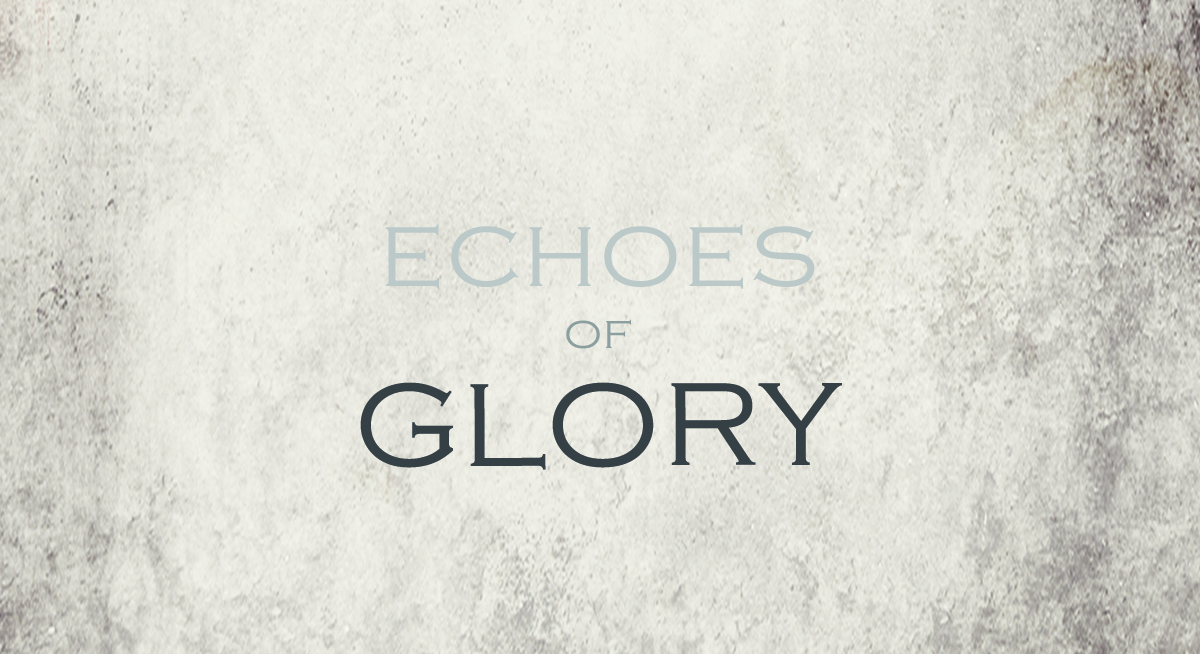Echoes of the Glory of Christ
When we think of the humiliation and exaltation of Christ we tend to do so in terms of the two stages of His incarnate existence–namely, His incarnation/death and His resurrection/ascension. However, there are echoes of the exalted glory of Christ scattered throughout the Gospel records. In his extraordinary sermon, “Glorying in the Cross of Christ,” John Maclaurin–one of the leading Scottish theologians of the 18th Century and friend of Jonathan Edwards–set in contrast the paradoxical humiliation and glory of Christ during His earthly ministry as recorded in the Gospels when he wrote:
His birth was mean on earth below; but it was celebrated with Hallelujahs by the heavenly host in the air above; He had a poor lodging, but a star lighted visitors to it from distant countries. Never prince had such visitors so conducted.
He did not have the magnificent equipage (i.e. horse-drawn carriages with servants) that other kings have; but he was attended with multitudes of patients, seeking and obtaining healing of soul and body: that was more true greatness than if he had been attended with crowds of princes. He made the dumb that attended Him sing His praises, and the lame to leap for joy; the deaf to hear His wonders, and the blind to see his glory.
He had no guard of soldiers, nor magnificent retinue of servants; but as the centurion, that had both, acknowledged, health and sickness, life and death, took orders from Him. Even the winds and storms, which no earthly power can control, obeyed him; and death and the grave dare not refuse to deliver up their prey when he demanded it.
He did not walk upon tapestry; but when he walked on the sea, the waters supported him. All parts of the creation, excepting sinful men, honored Him as their Creator.
He had no guard of soldiers, nor magnificent retinue of servants; but as the centurion, that had both, acknowledged, health and sickness, life and death, took orders from Him.
He kept no treasure; but when he had occasion for money, the sea sent it to him in the mouth of a fish. He had no barns, nor cornfields; but when He inclined to make a feast, a few loaves covered a sufficient table for many thousands. None of all the monarchs in the world ever gave such entertainment.
By these and many such things, the Redeemer’s glory shone through his meanness, in the several parts of his life. Nor was it wholly clouded at his death.
He had not indeed that fantastic equipage of sorrow that other great persons have on such occasions: but the frame of nature solemnized the death of its Author; heaven and earth were mourners; the sun was clad in black; and if the inhabitants of the earth were unmoved, the earth itself trembled under the awful load. There were few to pay the Jewish compliment of rending their garments; but the rocks were not so insensible, they rent their bowels.
He had not a grave of his own; but other men’s graves opened to him. Death and the grave might be proud of such a tenant in their territories; but he came not there as a subject, but as an invader, a conqueror. It was then the king of terrors lost his sting; and on the third day the Prince of life triumphed over him, spoiling death and the grave.
But this last particular belongs to Christ’s exaltation: the other instances show a part of the glory of his humiliation, but it is a small part of it.1
1. John Maclaurin The Works of John Maclaurin (Glasgow: Printed for William Collins, 1840) pp. 420-422




